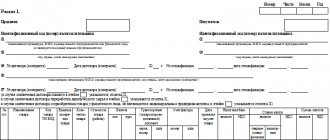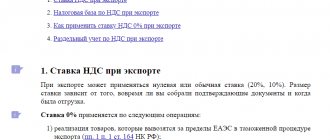Object of taxation upon import
The import of goods in Russian legislation is the import of goods into its territory without mandatory export.
Import is considered an absolutely independent object of VAT taxation, which means that importing taxpayers are obliged to act in accordance with the norms of the Tax Code of the Russian Federation, which clearly defines the procedure for taxation of import procedures. The applicant's obligations to pay VAT upon import arise as soon as the customs officers register the declaration. In this case, it is necessary to fully pay VAT at customs before the goods are released from it. The tax is calculated at established rates from the total amount, which is the customs value of imported goods, excise tax, and customs duty.
For information about what costs are included in the customs value, read the article “Inclusion of transport costs in the customs value.”
To determine the correct tax base, the currency value of goods must be converted into rubles at the exchange rate of the Central Bank of the Russian Federation on the date of registration of the declaration.
ConsultantPlus experts explained step by step how to take into account VAT when importing from countries outside the EAEU. Get trial access to the K+ system and upgrade to the Ready Solution for free.
“Customs” VAT: rules for calculation and reimbursement
If a trading company purchases goods for resale abroad, you should remember that when importing them into Russia, you must pay “customs” VAT. But it is not always possible to deduct such an amount... We pay VAT at customs
The import of goods into the customs territory of the Russian Federation is recognized as subject to value added tax (subclause 4, clause 1, article 146 of the Tax Code of the Russian Federation).
Calculating tax
How to calculate the tax base for “import” VAT is described in paragraph 1 of Article 160 of the Tax Code of the Russian Federation.
It includes: – customs value of imported goods; – the amount of excise taxes that must be paid if the goods are excisable; – customs duty. Customs cost.
The main document regulating the principles of its determination is the Law of the Russian Federation of May 21, 1993 No. 5003-1 “On the customs tariff” (hereinafter referred to as the Law). According to paragraph 1 of Article 12 of the Law, the customs value of imported goods is calculated based on the value of the transaction with the imported goods. And only if this is impossible, the customs value is established: - based on the value of the transaction with identical goods; – at the cost of a transaction with homogeneous goods; – by subtraction method; – addition method; - backup method. So, as a rule, the customs value is determined based on the price of the imported goods actually paid (payable) at the time of crossing the customs border of the Russian Federation, taking into account additional costs. These, in particular, include remuneration to the agent, the cost of services for packaging and labeling of goods, for its delivery to the place of import into the customs territory of the Russian Federation, for loading, unloading, reloading, insurance during transportation (Article 19, 19.1 of the Law). Please note that in certain cases, to confirm the customs value of goods, as well as to verify the information provided, customs officers may require additional documents and information.






